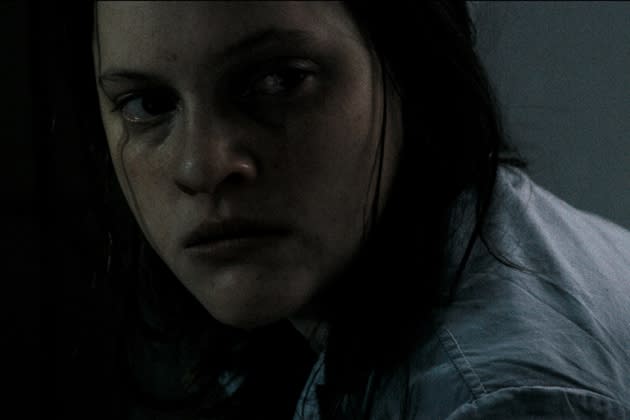Karim Ouelhaj’s ‘Megalomaniac’ Sells to Major Territories Ahead of Fantasia Premiere (EXCLUSIVE)

Karim Ouelhaj’s fourth feature ‘Megalomaniac’ – about to world premiere at Fantasia – has been sold to South Korea’s Youngjin Creative, Japan’s STS Ent and Latin America’s Encripta, with Indeed Film handling German-speaking territories.
Media Move handles world sales with XYZ in charge of North America.
More from Variety
'Wolf Creek' Producer Matt Hearn Backs 'Penny Lane is Dead' (EXCLUSIVE)
Alarm Pictures Closes North America on Lenin M. Sivam's 'The Protector' (EXCLUSIVE)
Ouelhaj is also about to wrap principal photography on his new feature “Le Pont des Fiévreux.” Described by producer Florence Saâdi as a “fantastic thriller tinged with horror,” it follows the journey of antihero Scola, lost between madness and purgatory. The film’s structure is inspired by 1990 release “Jacob’s Ladder.”
“It’s the craziest movie I have ever made,” teased the Belgian helmer, who also descends into madness in “Megalomaniac,” produced by Okayss and Les Films du Carré. It was inspired by the terrifying true story of the “Butcher of Mons” who murdered five women between 1996 and 1997. He was never apprehended.
While the case still attracts interest, with multiple people named as possible suspects, Ouelhaj decided against shooting a procedural.
“I didn’t have the budget to show the investigation, but maybe it worked out for the best – this way, I really had to focus on the killer’s point of view,” he tells Variety.
“There are so many films about criminals and the people who chase them. Fincher has already done it in ‘Seven’ and ‘Zodiac’ and I don’t think I could have done a better job than Fincher.”
Instead, he highlights the cycle of evil in the film, as the Butcher’s brutal actions influence his two children. Later, his son (Benjamin Ramon) continues his murderous spree, while his tormented daughter is unable to stop him.
“Starting with Martha’s violent birth that Felix witnesses, and the consequences it will have on both of them, I show that children imitate us,” says Ouelhaj.
“I am not trying to provide Felix with an excuse, but the chain of evil is continually perpetuated unless we face it. It was important to talk about family heritage here. How evil can be ‘built’ into a family and you can’t just wash it off.”
With his two characters trapped inside of their house for most of the film – just like Felix’s victims – Ouelhaj wanted to show their loneliness and inability to escape their dark legacy, he says, hiding above their heads as a permanent threat. But what awaits them outside isn’t exactly better, with Martha, played by Eline Schumacher, finding out just how quickly ridicule can turn into abuse.
“Eline was very curious about her character and she brought unexpected depth [to her performance]. She immediately understood the passive, childlike side of Martha. We looked at Kathy Bates’ work in ‘Misery,’ but she quickly ‘digested’ it and found her own interpretation,” notes Ouelhaj, calling Schumacher “an exceptional actress.”
While Martha can be seen as a “victim of patriarchy,” he adds, plunging into her brother’s twisted universe in order to survive, at one point she decides to act. Still, even though the film’s social context remains pronounced throughout the whole story, “Megalomaniac” keeps oscillating between reality and fiction until its explosive finale.
“Genre films allow the audience to accept the kind of reality that would be difficult to face otherwise. If it were a normal drama, it would have been too much – it would have felt too real. People need something else, especially when you talk about violence against women,” adds Ouelhaj.
“I think that ultimately, this film is more about tension than violence. When it comes to violence, especially violence against women, we need to be responsible [as filmmakers]. But I believe that we need to show it, also in order not to forget about it.”

Credit: Pascal Bernaerts
Best of Variety
Sign up for Variety’s Newsletter. For the latest news, follow us on Facebook, Twitter, and Instagram.

 Yahoo News
Yahoo News 
